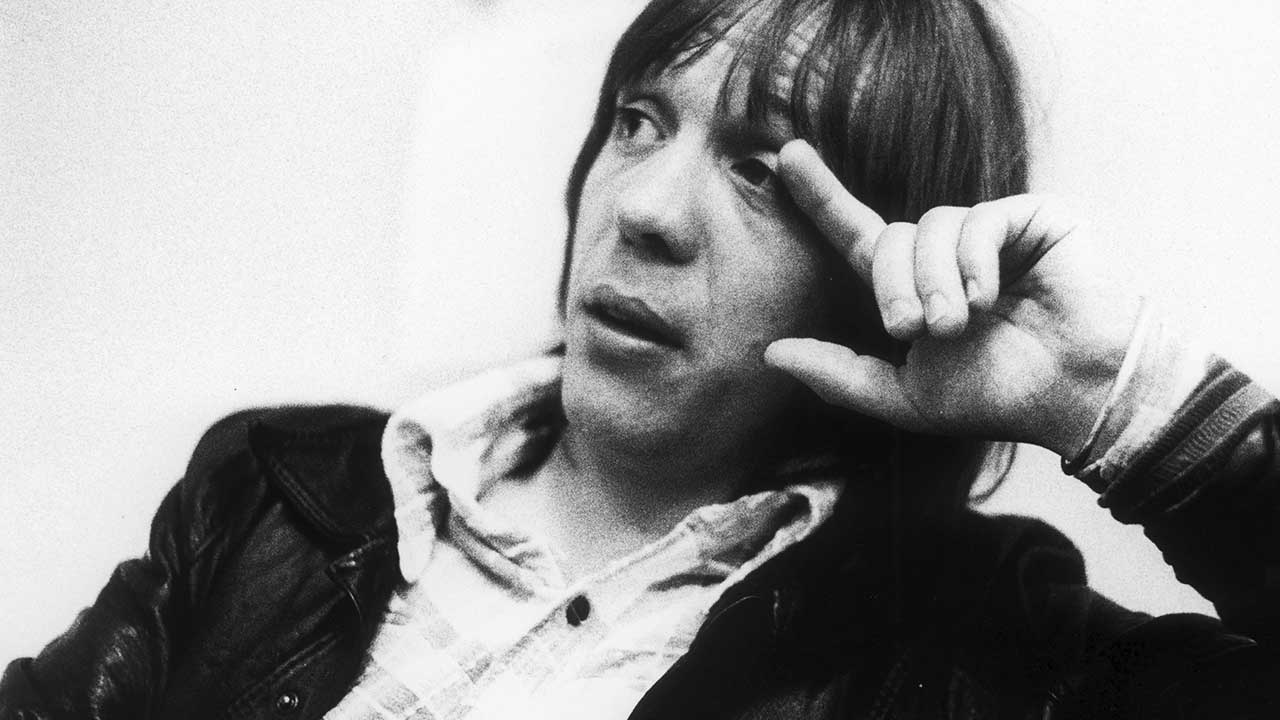Robin Trower: the guitarist who should be king
Robin Trower played guitar for Procol Harum, supported The Beatles and The Rolling Stones, then sold stadiums out as a solo artist in the 70s. So why did he never became a household name?

Robin Trower’s name genuinely deserves to be high and prominent whenever a list of rock guitar greats is drawn up. However, seemingly one of the almost forgotten guitar heroes of yesteryear it is either disgracefully low down among the also-rans or, unfathomably, conspicuous by its complete absence.
Having been dismissed in some quarters over the years as little more than a Jimi Hendrix copyist, especially around the period of his US chart-topping, stadium-filling commercial zenith in the mid-70s, hasn’t helped. But Trower has long been a true guitar stylist and a real individualist, and at his peak was so much more than just a technically superb player with a Hendrix fixation, one foot glued to a wah-wah pedal, and a peculiar facial expression while playing that landed him with the rather unkind nickname Fish Face.
An Essex boy from the same post-war generation that produced the likes of Eric Clapton, Jeff Beck and Jimmy Page, the young Trower got his pre-teenage kicks from the burgeoning, intoxicating beat of rock’n’roll – Jerry Lee Lewis, Gene Vincent, Elvis Presley.
It was seeing an album sleeve with a picture of Elvis with a guitar that filled Trower with the desire to pick up a guitar and become a musician. His first professional band was The Paramounts, whose claim to fame is that they supported both The Beatles (“They weren’t that good live, but they were nice guys”) and The Rolling Stones.
Having developed a love of blues, Trower quit The Paramounts and put together The Jam, before accepting an invitation from former Paramounts keyboard player/vocalist Gary Brooker that was just too good to turn down: to replace the guitarist in his band Procol Harum who, almost overnight, had become huge with their worldwide hit single A Whiter Shade Of Pale.
In his early days with Procol Harum, Trower’s rough, distorted guitar sound was often compared to that of Eric Clapton. However, by the time of later, early-70s Procol tracks like Whiskey Train (on the album Home) and Song For A Dreamer (on Broken Barricades), Trower’s guitar sound had taken on a rounder, less piercing sound that had elements of Hendrix’s sonics, and his playing too exhibited a notable Hendrix influence.
By the time of Broken Barricades, Procol was proving too restrictive for Trower, who was developing rapidly and impressively as a bluesy rock guitarist but whose place and playing in the stately paced, mostly keyboards-dominated band was becoming less integrated and increasingly marginal.
Sign up below to get the latest from Classic Rock, plus exclusive special offers, direct to your inbox!
It is widely thought that this was the reason Trower left Procol. But although it was a factor, the guitarist recently told Classic Rock that the main reason he left was because it was too restrictive for him as a songwriter.
Trower quit Procol in July 1971. First he formed the short-lived band Jude, with powerhouse Scottish R&B singer Frankie Miller and bassist Jimmy Dewar, before putting together the power trio with which he would have huge commercial success, especially in America, and establish himself as a guitarist of quite some repute.
The Robin Trower Band – Trower, Dewar and drummer Reg Isadore – debuted with 1973’s Twice Removed From Yesterday (credited to just ‘Robin Trower’), and immediately threw a lit match among the firecrackers within the blues rock scene.
Trower’s playing was phenomenal: heavy, brick-wall power chords and fluid, bluesy, highly melodic lead playing combined beautifully yet powerfully. His actual guitar sound was sensational: a simmering, overdriven, hot-valve mix of swirling reverb, sustain and controlled feedback one minute, pure-toned, honey-sweet and rapier-sharp the next.
Hendrix might have been dead for three years, but there were spooky, disembodied echoes of Jimi in both Trower’s playing – in particular his phrasing – and his sound (and for which he would henceforth have to endure flak). For anyone who knew Trower only from his Procol Harum days, it was a revelation. On songs like Rock Me Baby and the exquisite Daydream, Trower’s playing shone like a beacon.
But it was far from just Trower’s guitar playing that made The Robin Trower Band so impressive and so captivating. A case of a whole that was more than the sum of its parts, this was a power trio with knobs on. Isadore’s drumming is in places exemplary; rock solid and deep-grooved, explosive but controlled, fancy when called for but never flash. In Jimmy Dewar, as well as a very fine bass player Trower had arguably the finest blues rock singer of them all. Trower regards the day he met Dewar as being “probably the luckiest day in my life”.
Twice Removed From Yesterday may have fallen short of the charts in both Britain and America (although it had certainly been picked up on many a blues rock fan’s radar), but in the US, at least, the follow-up trumped it in spades commercially. Twice Removed… acted as a rangefinder; Bridge Of Sighs scored a direct hit.
Released in April 1974, Bridge Of Sighs reached a (perhaps lucky) No.7 in the US and announced the arrival of The Robin Trower Band and, even more loudly, Trower himself, with a glorious blues rock fanfare in the shape of one of the finest albums of its day.
Soon Trower was filling stadiums across America. There are times for everyone when everything seem to go wrong, and other times when everything seems to right. In addition to the latter, when Trower and his band recorded …Sighs the planets must have been perfectly aligned.
With the driving opener Day Of The Eagle and the slow-burning Too Rolling Stoned, in particular showcasing Trower’s slash-and-burn guitar, and Dewar’s breathy, warm-toned vocal delivery, the album is genuine class, and overall would remain the pinnacle of Trower’s career.
For Earth Below, in 1975 (by which time drummer Reg Isadore had been replaced by Bill Lordan), certainly gave Bridge Of Sighs a run for its money with some more classy blues rock songs, the guitar showcase that was the pulsating title track, and Dewar in breathtaking form on Alethea and the soul/funk Gonna Be More Suspicious. And although follow-up Long Misty Days was patchy, Caledonia wouldn’t seem out of place among the best of the previous three albums.
It would be wrong to imply that Trower’s career after that was insignificant, but that extraordinary musical trilogy did prove impossible to follow and the consistency seemed to deserted. Between 1976 and 1980 Long Misty Days, In City Dreams, Caravan To Midnight and Victim Of The Fury each had their moments.
His next power trio, Bruce, Lordan & Trower, with ex-Cream bassist Jack Bruce and drummer Bill Lordan, recorded one, album, B.L.T. in 1981, and Trower, Bruce and Reg Isadore did Truce the following year, but both were disappointing.
Since then Trower has continued to record regularly, but without ever coming up with anything genuinely notable or significant. His latest album, United State of Mind – recorded with producer/musician Livingstone Brown and reggae star Maxi Priest – was released last year.
Robin Trower’s legacy is certainly much more than Twice Removed From Yesterday, Bridge Of Sighs and For Earth Below, but mention his name and that’s what the vast majority of fans will remember most. And that’s hardly surprising: it’s easily arguable that no one else has ever recorded three back-to-back blues rock albums of such quality and consistency. And it’s very likely that no one else ever will.
Classic Rock’s production editor for the past 22 years, ‘resting’ bass player Paul has been writing for magazines and newspapers, mainly about music, since the mid-80s, contributing to titles including Q, The Times, Music Week, Prog, Billboard, Metal Hammer, Kerrang! and International Musician. He has also written questions for several BBC TV quiz shows. Of the many people he’s interviewed, his favourite interviewee is former Led Zep manager Peter Grant. If you ever want to talk the night away about Ginger Baker, in particular the sound of his drums (“That fourteen-inch Leedy snare, man!”, etc, etc), he’s your man.

